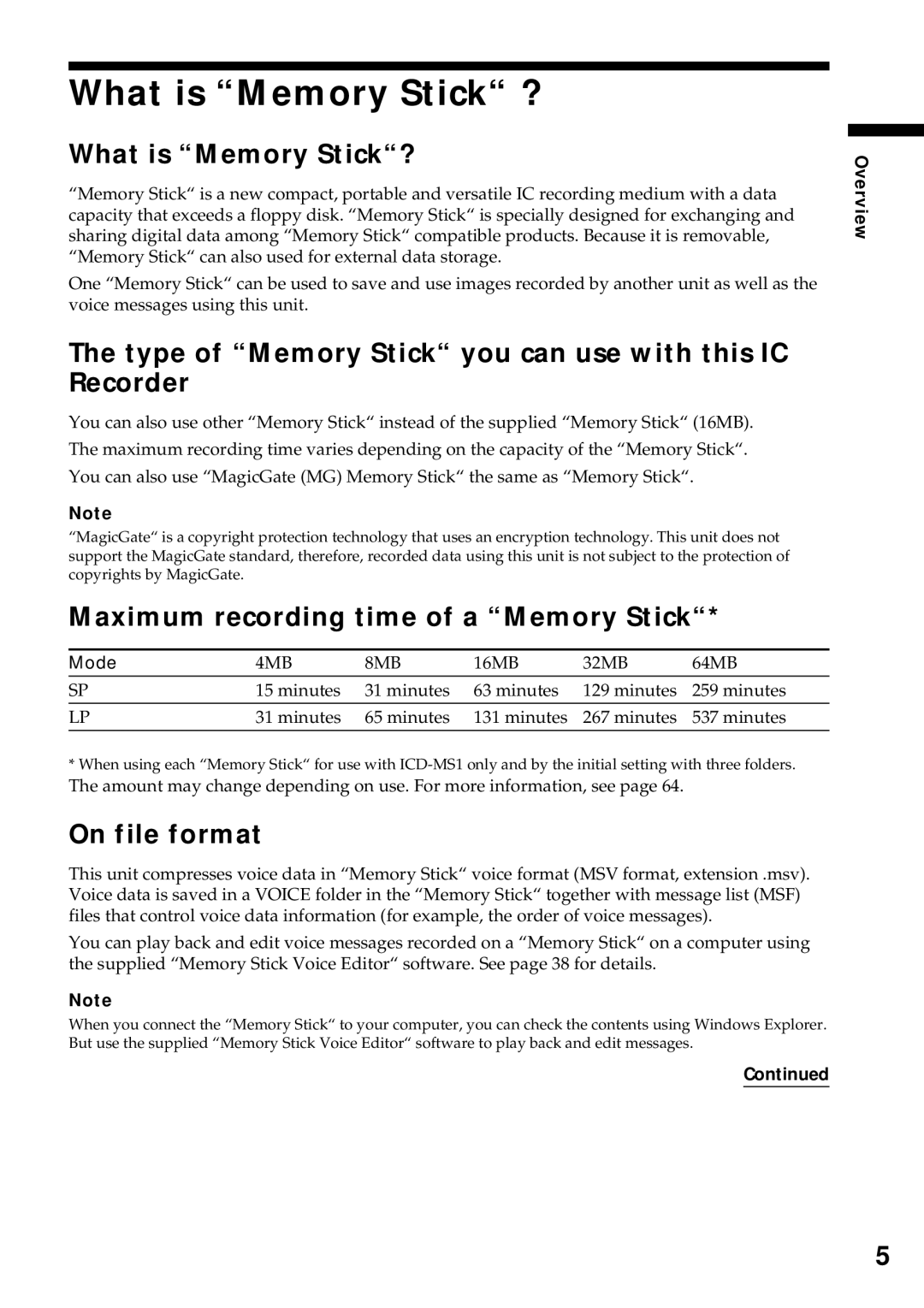
What is “Memory Stick“ ?
What is “Memory Stick“?
“Memory Stick“ is a new compact, portable and versatile IC recording medium with a data capacity that exceeds a floppy disk. “Memory Stick“ is specially designed for exchanging and sharing digital data among “Memory Stick“ compatible products. Because it is removable, “Memory Stick“ can also used for external data storage.
One “Memory Stick“ can be used to save and use images recorded by another unit as well as the voice messages using this unit.
The type of “Memory Stick“ you can use with this IC Recorder
You can also use other “Memory Stick“ instead of the supplied “Memory Stick“ (16MB). The maximum recording time varies depending on the capacity of the “Memory Stick“. You can also use “MagicGate (MG) Memory Stick“ the same as “Memory Stick“.
Note
“MagicGate“ is a copyright protection technology that uses an encryption technology. This unit does not support the MagicGate standard, therefore, recorded data using this unit is not subject to the protection of copyrights by MagicGate.
Maximum recording time of a “Memory Stick“*
Mode | 4MB | 8MB | 16MB | 32MB | 64MB |
SP | 15 minutes | 31 minutes | 63 minutes | 129 minutes | 259 minutes |
LP | 31 minutes | 65 minutes | 131 minutes | 267 minutes | 537 minutes |
*When using each “Memory Stick“ for use with
The amount may change depending on use. For more information, see page 64.
On file format
This unit compresses voice data in “Memory Stick“ voice format (MSV format, extension .msv). Voice data is saved in a VOICE folder in the “Memory Stick“ together with message list (MSF) files that control voice data information (for example, the order of voice messages).
You can play back and edit voice messages recorded on a “Memory Stick“ on a computer using the supplied “Memory Stick Voice Editor“ software. See page 38 for details.
Note
When you connect the “Memory Stick“ to your computer, you can check the contents using Windows Explorer. But use the supplied “Memory Stick Voice Editor“ software to play back and edit messages.
Continued
Overview
5
